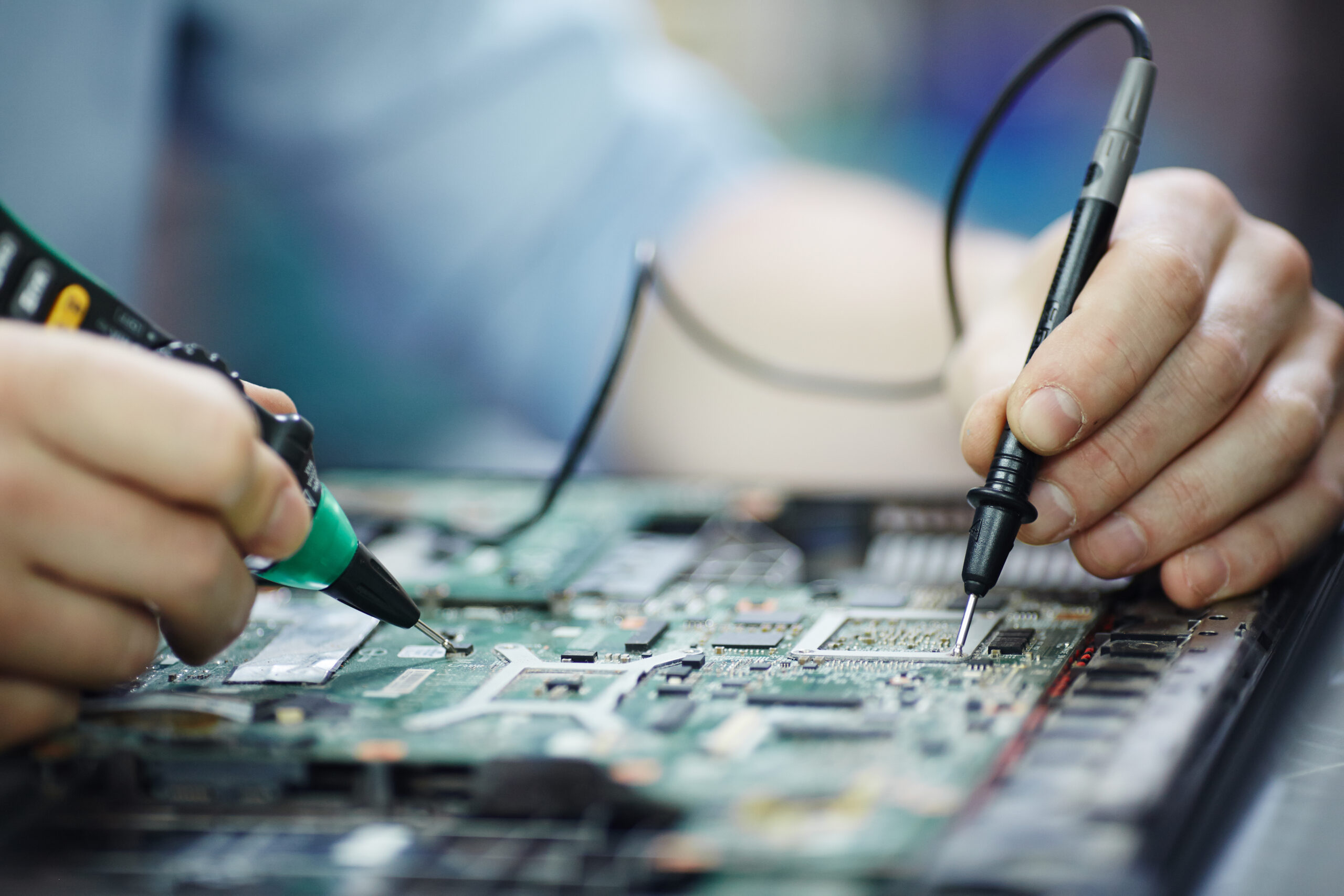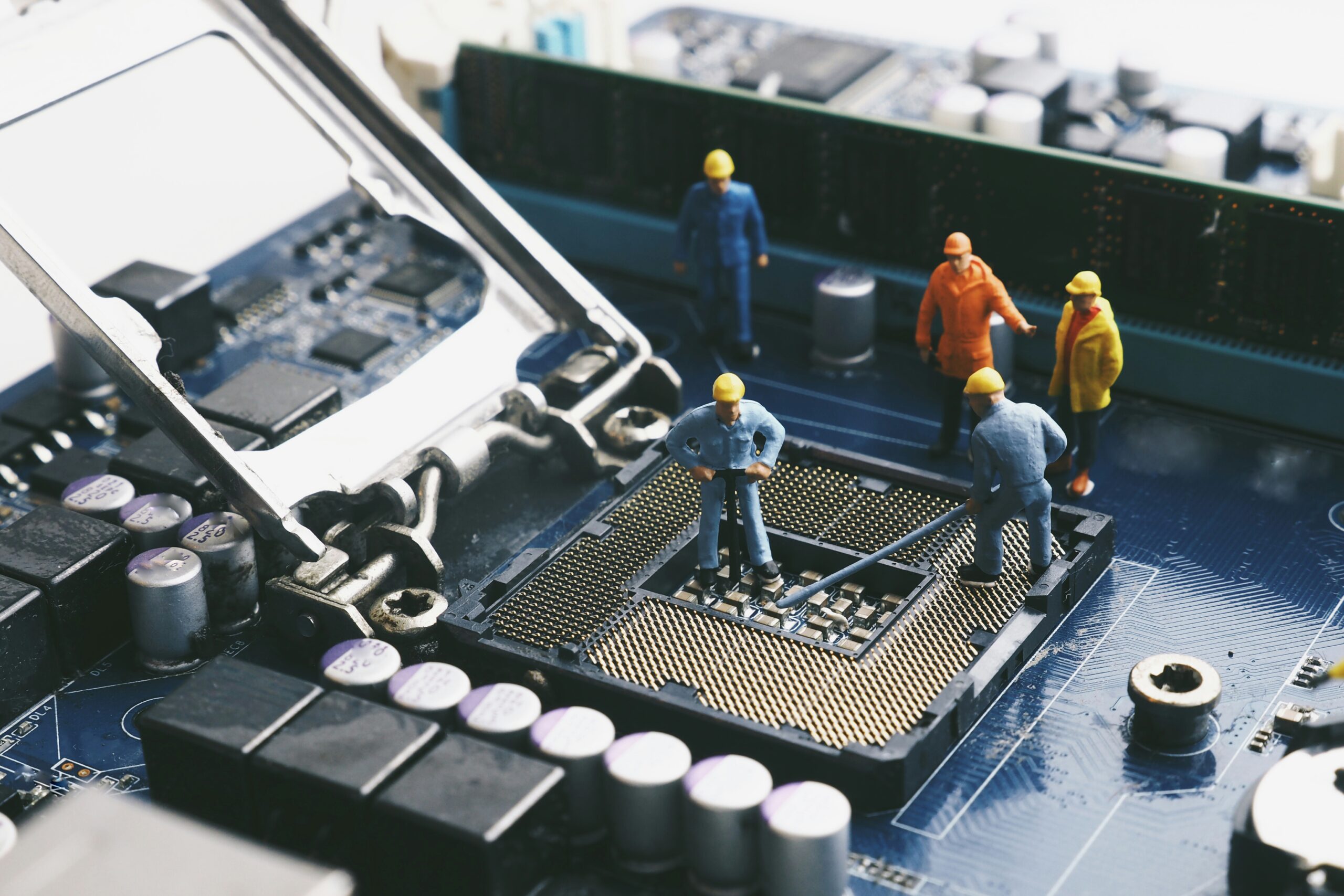Computer maintenance refers to the care you give your computer to keep running smoothly. Proper computer maintenance is essential because it helps your computer work better and last longer. With regular maintenance, you can avoid slowdowns in performance, protect your important files, and fix minor issues before they become big problems. The main things computer maintenance includes are:
- Cleaning your computer hardware to remove dust and dirt
- Caring for your computer’s hard drive through activities like defragmenting and backing up files
- Protecting your computer from viruses by keeping security software updated
- Organizing your computer’s files into clearly named folders
- Following general tips like avoiding overheating and careful cable management
In this guide, we will explain each of these aspects of computer maintenance in detail. We’ll provide specific steps you can take weekly, monthly, and annually. We aim to help you understand proper computer care so you can continue getting the best performance from your device.
Cleaning Your Computer Hardware
One of the most critical aspects of computer maintenance is cleaning. Much like our own bodies, computers need regular cleaning to stay healthy. Over time, dust and dirt can accumulate both inside and outside the machine. It not only affects appearance but can also negatively impact performance. There are a few different areas that need attention:
Dusting the Exterior
- Keyboard: At minimum, wipe down your keyboard once a week with a dry microfiber cloth. For deeper cleaning of hard-to-reach areas, use compressed air.
- Monitor: Gently wipe your monitor screen weekly with a microfiber cloth to remove fingerprints and smudges.
- Mouse: Turn your mouse upside down once a week and remove any built-up dirt or dust. You can add rubbing alcohol to the cloth for sanitizing.
Deep Cleaning the Interior
Every 3-6 months, you’ll want to clean your entire computer system thoroughly. It includes carefully opening the casing and vacuuming any accumulated dust bunnies. Here are the step-by-step instructions:
Power down your computer entirely and unplug all cables. It is essential for safety. Remove any screws to lift off the case cover. Gently detach any wires or cards. Take your compressed air can and dust out the fan vents, heat sinks, and other interior spaces. Hold fans still so they don’t spin too fast.
Wipe down the motherboard and other components with a dry cloth if any grime is visible. Vacuum up any remaining particles, being careful not to over-vacuum delicate areas. Replace all components, screws, and casing when complete. By keeping your computer hardware dust-free inside and out, you can help it run at optimal temperature and performance. Regular cleaning is an easy way to help your computer’s lifespan.
Caring for Your Computer’s Hard Drive

The hard drive is often called the computer’s ” brain, ” as it stores all your essential files and programs. To keep your computer running smoothly, it’s essential to maintain your hard drive properly through regular care and updates.
● Defragmenting for Optimal Performance: Over time, as you install and delete files, empty spaces appear fragmented across your hard drive. Defragmenting groups these empty spots together to optimize read/write speeds. I recommend running the defrag tool once a month.
● Backing Up is Crucial: No matter how careful you are, hard drive failures can still occur. That’s why backing up your data is so important. Back up at minimum once a week to an external hard drive or cloud storage service. Some options are:
● External hard drive: Connect via USB for manual backups: Cloud services: Back up to Dropbox, OneDrive, or Google Drive for automatic syncing across devices
● Checking Startup Programs: Sometimes, programs you no longer use can run on startup, slowing your computer. Go to Task Manager > Startup to turn off unused apps for a quicker boot time.
● Freeing Up Space: Over time, temporary files can consume storage. Run Disk Cleanup monthly to delete these files in one click. You can also uninstall large unused programs to free gigabytes.
Following these regular hard drive maintenance steps can maximize its performance and safeguard your important data for years.
Protecting Your Computer from Viruses
While browsing the web, there are always threats lurking in the form of viruses, ransomware, and other malware. Keeping your defenses strong is so important. Let’s look at some key things you can do:
Updating Antivirus Software
Having a robust antivirus is step one against malware. Be sure to install updates from your software provider as soon as they’re available. New virus definitions are included. I recommend automatic updates.
Checking for Signatures Too
In addition to definition updates, your antivirus may have “signatures” recognizing specific malware strains. Make sure to enable these background updates as well for maximum protection.
Changing Passwords Regularly
Use strong, unique passwords and change them every 90 days. It prevents hackers from accessing your accounts if they get breached. Use a password manager to generate and store secure credentials.
Monitoring for Firmware Updates
Firmware is the low-level software that controls hardware. Updates fix vulnerabilities, so check manufacturer websites occasionally for your computer, printer, router, and other devices.
Practicing Online Safety
Be wary of sketchy links and attachments, especially in emails. Only download software from official sources. Using an ad blocker also cuts down on malicious ads. Overall, practice cyber smarts for security awareness.
With some simple security maintenance like keeping software updated, using unique passwords, and practicing safe web habits, you can do your part to defend against today’s digital dangers.
Organizing Your Computer’s Files
Over time, it’s easy for our computer folders and desktops to become cluttered with random files scattered everywhere. This disorganization can slow down your machine’s performance. Let’s look at some simple ways to clean up the chaos:
● Categorizing with Folders: Take an hour to go through your files and organize them into named categories like “Documents,” “Photos,” “Work,” etc. Subfolders help further separation.
● Deleting Unused Programs: Uninstall any apps or programs you never use to declutter your hard drive. It frees up valuable storage space.
● Emptying the Recycling Bin: Empty the recycling bin weekly to permanently delete files you no longer need, taking up disk space.
● Removing Temporary Files: Your browser stores cache, cookies, and temporary internet files over time. Clearing these once a month boosts efficiency.
● Using Cloud Storage for Backups: Upload your photos, videos, and documents to free up local storage. Services like Dropbox, OneDrive, and Google Drive provide backup protection, too.
You’ll save time finding what you need with everything neatly organized and unnecessary files removed. Regular organization is also essential for backup and maintenance purposes in the future.
General Computer Maintenance Tips

In addition to the specific maintenance tasks already covered, here are some general tips that can help prolong your computer’s life:
- Avoiding Overheating: Ensure adequate airflow by clearing dust from vents regularly. Don’t place your computer somewhere with restricted ventilation, like under furniture.
- Managing Cables and Cords: Keep cable clutter to a minimum and use ties or velcro straps to organize. Tripping hazards and tangled wires can damage ports.
- Battery Care for Laptops: Only charge your laptop battery between 20-80% to maximize lifespan. Avoid leaving it plugged in constantly, which can degrade the battery over time.
- Food and Drink Safety: Keep food and liquids away from your computer to prevent accidental spills that could cause damage.
- Ignoring Spam Messages: Never open suspicious email attachments or click links that could infect your device with malware.
- Transferring Files to Cloud Storage: Backing up important documents to the cloud creates an additional safeguard against data loss from hard drive failure.
- Checking for Firmware Updates: Manufacturers release firmware updates to patch security vulnerabilities, so check occasionally if any are available for your computer and peripherals.
- Setting Parental Controls: If others use your device, enable content filters and time limits through the settings menu for a more secure online experience.
Following some general best practices around temperature control, cable management, battery care, and more, you can help ensure your computer runs as smoothly as possible for many years.
Need Help With Computer Maintenance?
If you need assistance with any computer maintenance tasks covered in this article, consider contacting the experts at ZZ Servers. As an IT services provider with over 17 years of experience, ZZ Servers understands how crucial regular computer care is for home and business users. Their team of certified technicians can help with everything from deep hardware cleaning and security software installation to file organization, backup services, and more. For affordable maintenance plans tailored to your organization’s needs, call ZZ Servers today at 800-796-3574. You’ll experience their commitment to predictable, documented results and building long-term trust with clients of all sizes.
Conclusion
This article discussed what computer maintenance involves and why it’s so important to keep your device running smoothly. Some key takeaways include:
Computer maintenance refers to regular care tasks like cleaning, complex drive maintenance, security updates, file organization, and general tips. By following the guidelines provided, you can help prevent slowdowns in performance, protect valuable data from hardware failures, and avoid security threats.
Tasks like defragmenting your hard drive monthly, backing up files weekly, and updating antivirus software are simple yet effective forms of computer care. Organizing your files into logical folders and removing unnecessary programs helps improve efficiency.
General tips around temperature control, cable management, and battery safety can extend your computer’s lifespan for many years. You can get the best ongoing value from your computer investment with consistent maintenance.
Frequently Asked Questions
How often should I clean my computer?
I recommend dusting the exterior keyboard, monitor, and mouse at least once a week. Every 3-6 months is generally sufficient for a deeper interior clean. The frequency may increase depending on your environment – if you have pets or live in a dusty area, you may need to clean more often. The important thing is to remove any built-up dirt before it impacts performance.
What is the best way to backup important files?
You are designating an external hard drive solely for backups. This allows you to disconnect and store it separately for security quickly. Backing up to the cloud is also convenient as it protects your data in case of hardware failure or theft. Whichever method you choose, backup at least weekly so your critical files are always protected.
What types of malware should I watch out for?
Some common malware risks include viruses, ransomware, trojans, and worms. Viruses can delete or change files, ransomware encrypts your data and demands payment to restore access, while trojans let hackers control your computer remotely. It’s best to be cautious of email attachments, pop-ups, and torrent downloads from untrusted sources, as these are frequent infection points.
How do I know what programs to delete?
Take inventory of the programs you installed and when you last used each. If it’s been months since opening an app, it’s safe to uninstall it to free up storage space. You can also search your hard drive for large unused files eating up gigabytes. Just be sure to keep all critical operating system tools or programs you may need in the future.

